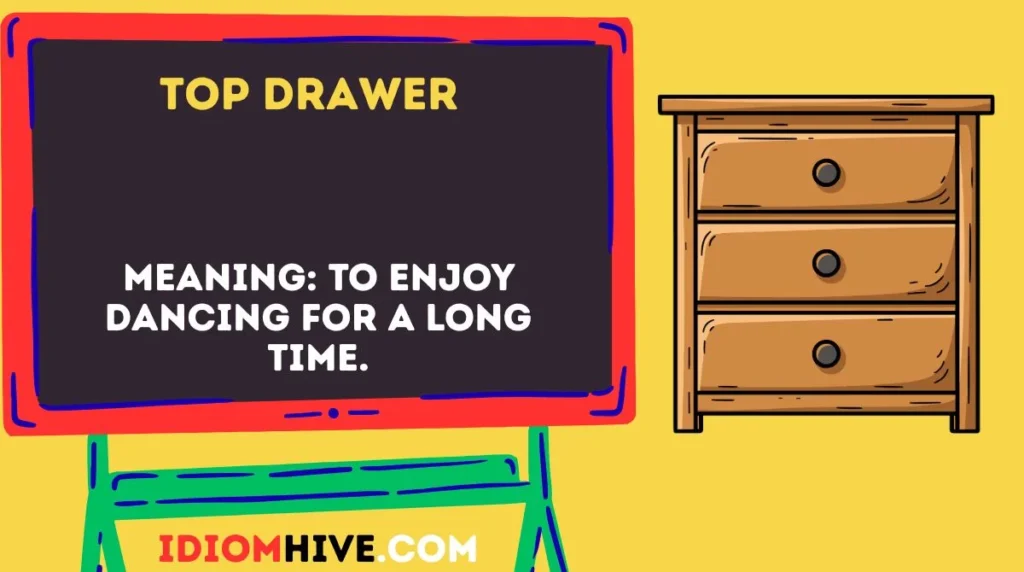Idioms are colorful phrases in English that don’t always mean what the words literally say. Instead, they carry special meanings that make communication richer and more expressive.
For example, instead of simply saying “the best option,” we might say “the cream of the crop.” Idioms allow us to speak with creativity, add humor, and emphasize emotions.
When it comes to describing something or someone as the “best,” English has countless idioms. These idioms are useful in conversations, writing, and professional settings because they make language more engaging and memorable.
Instead of repeating the word “best” again and again, you can use idioms to stand out and sound more natural.
In this article, we’ll explore more than 49 idioms connected to the idea of being “the best.” We’ll group them into themes so you can learn them easily, along with meanings, examples, and notes on usage.
Did You Know?
The idiom “cream of the crop” comes from farming. Cream naturally rises to the top of milk, and farmers considered it the richest, most valuable part. That’s why it became a metaphor for “the very best.”
Idioms that Mean “The Best” or “Highest Quality”
Cream of the Crop
Meaning: The finest or best among a group.
Example: “These students are the cream of the crop in the class.”
Similar Idiom: Best of the bunch.
Note: Common in both formal and casual speech.
Best of Both Worlds
Meaning: Enjoying two different advantages at the same time.
Example: “Working from home gives me the best of both worlds: comfort and flexibility.”
Similar Idiom: Have it all.
Note: Often used in everyday conversations.
Second to None
Meaning: Better than everything else; unmatched.
Example: “Her cooking skills are second to none.”
Similar Idiom: Beyond compare.
Note: Often heard in formal praise or professional settings.
The Bee’s Knees
Meaning: Something or someone outstanding or excellent.
Example: “This new phone is the bee’s knees!”
Similar Idiom: The cat’s whiskers.
Note: Informal, often playful.
The Cat’s Whiskers
Meaning: A person or thing regarded as the best.
Example: “He thinks he’s the cat’s whiskers because he won the contest.”
Similar Idiom: The bee’s knees.
Note: Informal and old-fashioned, but still fun.
Top Drawer

Meaning: Of the highest quality or class.
Example: “This hotel offers top-drawer service.”
Similar Idiom: First-class.
Note: More common in British English.
Best Thing Since Sliced Bread
Meaning: Something considered an amazing new invention.
Example: “This app is the best thing since sliced bread.”
Similar Idiom: A real game-changer.
Note: Informal, humorous.
Head and Shoulders Above
Meaning: Much better than others.
Example: “Her performance was head and shoulders above the rest.”
Similar Idiom: Miles ahead.
Note: Works in professional or casual talk.
First-Rate
Meaning: Excellent quality.
Example: “The restaurant serves first-rate dishes.”
Similar Idiom: Top-notch.
Note: Common in reviews and formal descriptions.
Top-Notch
Meaning: Outstanding, excellent.
Example: “She is a top-notch lawyer.”
Similar Idiom: First-rate.
Note: Informal but widely used.
Idioms for People Who Are the Best
The Apple of Someone’s Eye
Meaning: A person who is most loved and valued.
Example: “His daughter is the apple of his eye.”
Similar Idiom: Treasure of the heart.
Note: Emotional and affectionate, often in family settings.
Best Buddy
Meaning: Closest and most trusted friend.
Example: “He’s been my best buddy since childhood.”
Similar Idiom: Partner in crime.
Note: Casual and friendly.
Fair and Square
Meaning: Honest, the best in terms of fairness.
Example: “She won the contest fair and square.”
Similar Idiom: Above board.
Note: Everyday English.
A Cut Above
Meaning: Someone or something better than the rest.
Example: “This teacher is a cut above the others.”
Similar Idiom: In a league of one’s own.
Note: Formal and professional use.
A Diamond in the Rough
Meaning: Someone with great potential to be the best, though not yet polished.
Example: “The young player is a diamond in the rough.”
Similar Idiom: Hidden gem.
Note: Common in sports, work, and teaching.
In a League of One’s Own
Meaning: Far better than others.
Example: “When it comes to innovation, she’s in a league of her own.”
Similar Idiom: A cut above.
Note: Used in both formal and casual speech.
The Golden Boy/Girl
Meaning: Someone admired for their success and talent.
Example: “He’s the golden boy of the football team.”
Similar Idiom: Star player.
Note: Informal but common.
Teacher’s Pet
Meaning: The student considered the best or favorite.
Example: “He was always the teacher’s pet in school.”
Similar Idiom: Favorite pupil.
Note: Often informal and teasing.
Idioms About Effort and Doing Your Best
Give It Your Best Shot
Meaning: Try as hard as you can.
Example: “Even if you fail, give it your best shot.”
Similar Idiom: Do your utmost.
Note: Motivational, everyday usage.
To the Best of My Ability
Meaning: Doing something as well as you can.
Example: “I’ll complete this project to the best of my ability.”
Similar Idiom: Put your heart into it.
Note: Polite and professional.
Put Your Best Foot Forward
Meaning: To make the best possible impression.
Example: “He put his best foot forward during the interview.”
Similar Idiom: Show your best side.
Note: Common in business and career contexts.
At Your Best
Meaning: Performing at your highest level.
Example: “She’s at her best when solving problems under pressure.”
Similar Idiom: In peak form.
Note: Used in sports, work, and general praise.
Do Your Level Best
Meaning: To make your greatest effort.
Example: “I’ll do my level best to finish on time.”
Similar Idiom: Try your hardest.
Note: Formal or semi-formal.
Rise to the Occasion
Meaning: To perform well in a challenging situation.
Example: “He really rose to the occasion during the final game.”
Similar Idiom: Step up to the plate.
Note: Common in sports, leadership, and work.
Make the Best of It
Meaning: To accept a bad situation and do the best possible.
Example: “We didn’t win, but let’s make the best of it.”
Similar Idiom: Look on the bright side.
Note: Motivational and informal.
Play Your Best Hand
Meaning: Use your best skills or options.
Example: “He played his best hand during negotiations.”
Similar Idiom: Show your cards.
Note: Often used in professional and strategy contexts.
Idioms About Being Better Than Others
Ahead of the Pack
Meaning: Leading or being the best in competition.
Example: “Our company is ahead of the pack in technology.”
Similar Idiom: Out in front.
Note: Business and sports.
Cut from the Best Cloth
Meaning: Of very high quality or upbringing.
Example: “She’s cut from the best cloth—polite and hardworking.”
Similar Idiom: Well-bred.
Note: More formal.
Best Man/Woman for the Job
Meaning: The most suitable person.
Example: “She’s the best woman for the job.”
Similar Idiom: Perfect fit.
Note: Professional use.
Outshine the Rest
Meaning: Perform better than others.
Example: “Her design outshone the rest.”
Similar Idiom: Stand out.
Note: Informal and motivational.
Rule the Roost
Meaning: Be the best or dominant one in control.
Example: “She rules the roost at home.”
Similar Idiom: Call the shots.
Note: Informal, often humorous.
The Top of the Heap
Meaning: The very best or most successful.
Example: “He’s at the top of the heap in his profession.”
Similar Idiom: Top dog.
Note: Professional or informal.
Top Dog

Meaning: The most important or successful person.
Example: “He’s the top dog in the company.”
Similar Idiom: Big shot.
Note: Informal, business or politics.
How to Use These Idioms in Daily Life
- In Speaking: Use them to sound natural and engaging. For example, instead of saying “She’s very talented,” you could say, “She’s in a league of her own.”
- In Writing: Idioms make your essays, blogs, and emails more vivid. “This solution is the cream of the crop” is more powerful than “This is the best.”
- In Professional Settings: Use idioms like “put your best foot forward” or “ahead of the pack” to show confidence and positive energy in meetings, interviews, and presentations.
Common Mistakes Learners Make With Idioms
- Wrong Literal Meaning:
❌ “She put her best foot forward” (thinking about walking).
✅ Correct: It means “she made a good impression.” - Mixing Idioms:
❌ “Cream of the bread.”
✅ Correct: “Cream of the crop.” - Overusing Idioms:
❌ Using three idioms in one sentence makes it confusing.
✅ Correct: Use one or two idioms naturally.
FAQs
1. Why should I learn idioms about “best”?
Because they enrich your vocabulary, help you sound natural, and make your English more memorable.
2. Are idioms formal or informal?
Some are casual like “the bee’s knees,” while others like “second to none” can be used in professional contexts.
3. Can I use idioms in writing?
Yes! Idioms are great for essays, stories, blogs, and even business emails if used wisely.
4. Which idiom is best for praising someone?
Expressions like “a cut above,” “in a league of one’s own,” or “the apple of someone’s eye” work well.
5. How do I avoid mistakes with idioms?
Understand the context, learn the correct form, and avoid translating literally from your language.
Conclusion
Learning idioms for “best” is like adding special seasoning to your English. Instead of repeating the plain word “best,” you can say “cream of the crop,” “top-notch,” or “second to none.”
These phrases make your language colorful, creative, and more enjoyable to listen to. Whether you’re speaking casually with friends, writing an article, or presenting at work, idioms give your English personality and strength.
So go ahead—put your best foot forward and start using these expressions today!










